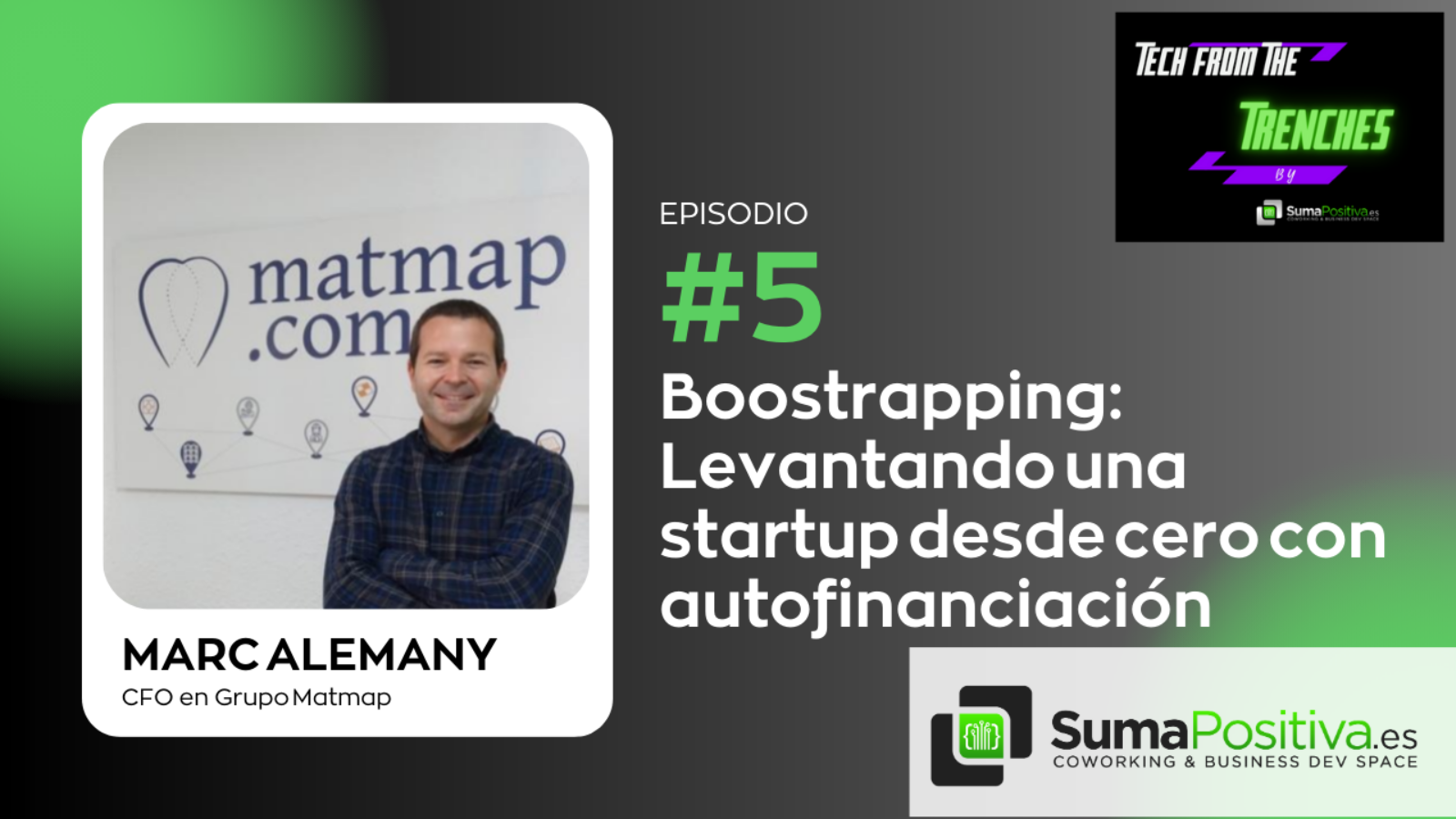Bootstrapping: Building a Startup from Scratch through Self-Funding.
Marc Alemany, an economist and journalism graduate, is the CFO of MatMap Group and possesses extensive knowledge of this startup growth model.
As a determined entrepreneur, he shares how he had the clear intention of starting his own company over ten years ago. He launched various business projects initially within his family and later in more scalable models (startups).
Alongside his partner Maria Martinez, they launched MatMap, an online marketplace for construction materials. Initially, it was a project with a significant technological component. However, they realized that the problem they aimed to solve was more complex than initially anticipated. They also recognized that the best way to address it might not involve an expensive and lengthy technological development.
They share the challenges they encountered in making the marketplace work until they realized that, to streamline the process, they decided to focus the business on the technological aspect. They pivoted towards setting up highly specialized e-commerce platforms that simplified the user experience.
During the Q&A session, they were asked several questions such as:
- Is a Bootstrapping model suitable for all companies? Should all projects keep in mind the need for self-funding at some point in their business life.
- Does having less financial resources create more pressure for return on investment? Yes, with less economic support, one must be more conscious of capital and it undoubtedly impacts the strategy. They had to put some plans on hold until they could generate capital from the business to invest.
- Have they considered raising venture capital? They have explored the possibility but, so far, it hasn’t gone beyond initial analysis phases. The partners are determined to establish a solid foundation and opt for organic growth.
- What role does the CFO play in a Bootstrapping model? At MatMap, everyone has had to do everything; there is no room for specialists. With this premise, a CFO provides insight into the company’s situation based on data. Expenses are well known (with less uncertainty), so making accurate forecasts to align the startup’s strategy is crucial.
- Can a CFO of a Bootstrapping-based startup offer valuable knowledge to other startups based on an injection-of-capital model? Marc confirms that it is possible to raise awareness among such companies that money is not limitless and that they must be “capital-conscious.” However, he emphasizes the importance of the CFO having a deep understanding of the startup’s business when providing guidance.
- What are the key indicators for Marc in the current state of his startup? Particularly for MatMap, tracking sales is essential. In their market, the average ticket value holds significant information about the company’s solidity. Monitoring daily transaction numbers and their projections in the medium or long term is crucial.
We concluded the event by providing value through references.
Books to delve into:
- “Work Rules!” by Laszlo Bock
And we wrap up with the lesson Marc would have liked to internalize years ago: “He would tell himself to try to learn from everything. Learn from the people around you because there is a lot of learning in them. Additionally, he would say to try inexpensive approaches in the entrepreneurial journey.“
We look forward to seeing you in future podcasts. Take care, guys and girls in the trenches.
We invite you to subscribe to our streaming channels and podcasts:

